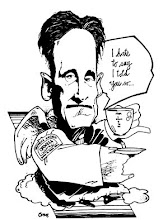http://bellagerens.com/2009/10/12/thats-right-whip-the-libertarian/
People on the left think libertarians are advocating exploitation, pollution, callousness, and the primacy of making (and keeping) money above all else – because they read ‘freedom’ to mean ‘freedom to do whatever you please.’
And both sides think libertarians consider the laws we have prohibiting these activities to be a restriction on freedom.
When will they realise that they don’t understand?
Libertarians believe you should be free from coercion – and that you must not coerce anyone else. Libertarians believe you should be free from interference – and that you must not interfere with anyone else. Libertarians believe you should be free from oppression – and that you must not oppress anyone else. Because these are to be universal freedoms: what you do not wish done to you, you must not do to anyone else.
(Taken from last link)
In fact, Buddha and Confucius were both concerned mainly with individual freedom. Confucius’s theory of society, in particular, was very individualistic; he clearly formulated for the first time in recorded history that principle of “reciprocity,” the “golden rule” for any liberal society.
He maintained that the very fundamental principle for a happy society is “Not doing to others what one does not wish them do to one’s self.”
Confucius shared, along with the greatest masters of liberal thought in the West, an almost unlimited confidence in education. He believed that everybody could be educated in principle, regardless of his condition, and that coercion is a very limited means of establishing a good society. Though the social and political theories of Confucius in sixth century B.C. China were not the same as those of modern Western liberals, Confucius had a clear and liberal idea of the unsurpassable limits of government in any desirable society.
He made quite clear that the government existed for the people and not the people for the government, that no hereditary power whatsoever, but the happiness of the people provided a justification for the rulers. Like Western liberal democracy, Confucianism values freedom and the individual, and denies unlimited authority to the State. In fact, the entire humanistic and liberal background out of which Western democracy grew has much in common with the best traditions of Chinese thought. Ultimately, what is really relevant is neither East nor West, or any other geographical or historical limitation. It is human nature itself.
http://libertarianpapers.org/2009/15-two-views-of-liberty-occidental-and-oriental/








No comments:
Post a Comment